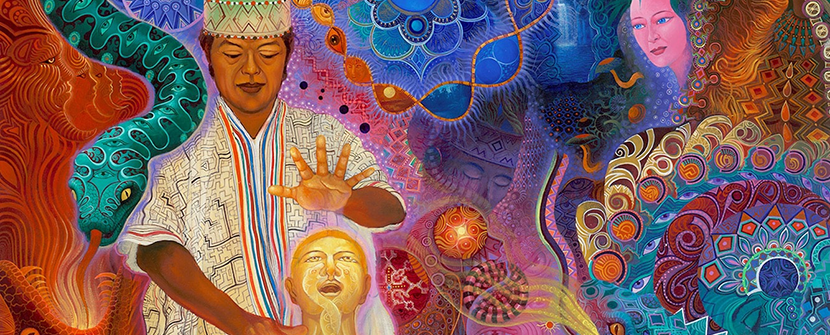In our modern world, the use of psychedelics has gained popularity for their potential therapeutic and mind-expanding properties. However, the history of these substances dates back thousands of years. Ancient civilizations around the globe had their own encounters with mind-altering substances, each offering a unique perspective on the human experience. In this blog post, we'll delve into the fascinating world of ancient psychedelics, exploring their cultural, spiritual, and medicinal significance.
Ancient Roots of Psychedelics
Ancient psychedelics are not a recent discovery but rather a continuation of a practice that spans millennia. To fully appreciate their significance, we must first understand their origins.
Soma: The Divine Nectar of the Vedas
One of the earliest recorded instances of psychedelic use can be found in the sacred texts of India, known as the Vedas. In these ancient scriptures, the psychoactive beverage known as Soma was described as a divine elixir that connected humans with the gods. Though the exact identity of Soma remains a mystery, scholars speculate it could have been derived from plants like Amanita muscaria or Ephedra.
The Mazatec Tradition: Psilocybin Mushrooms in Mesoamerica
Across the globe, the indigenous Mazatec people of Mexico have a rich history of using psilocybin-containing mushrooms for religious and healing purposes. These mushrooms, known as "magic mushrooms" today, were traditionally ingested during ceremonies to facilitate communication with the spirit world and gain insights into one's life.
Spiritual Insights and Ancient Rituals
Psychedelics often played a central role in the spiritual practices and rituals of ancient civilizations, serving as a means to connect with the divine and unlock hidden realms of consciousness.
The Eleusinian Mysteries: The Power of Ergot
In ancient Greece, the Eleusinian Mysteries were secretive ceremonies dedicated to the goddess Demeter. Participants consumed a mysterious beverage called "kykeon," believed to contain ergot-infected barley. This substance was thought to induce profound visions and provide spiritual enlightenment, making it a central aspect of Greek religious life.
Peyote and the Native American Church
The use of peyote, a cactus containing the psychedelic compound mescaline, has a long history among Native American tribes. The Native American Church incorporated peyote into their rituals as a sacrament, believing it could heal both the body and the spirit. Today, the use of peyote in religious ceremonies is protected by U.S. law.
Ancient Medicinal Practices
Ancient civilizations also recognized the medicinal properties of certain psychedelics, using them to treat various physical and mental ailments.
Ayahuasca: The Amazonian Healer
The Amazon rainforest is home to ayahuasca, a potent psychedelic brew made from the Banisteriopsis caapi vine and Psychotria viridis leaves. Indigenous peoples have used ayahuasca for centuries as a powerful healing tool, helping individuals confront and overcome deep-seated traumas, addictions, and psychological issues.
Cannabis in Ancient China
Cannabis has a long history of medicinal use in ancient China, where it was employed as an analgesic and sedative. The Chinese emperor Shen Nong, a legendary figure in traditional Chinese medicine, is said to have extolled the plant's healing properties around 2700 BCE.
The Decline and Rediscovery
The use of psychedelics in ancient cultures began to decline with the spread of Abrahamic religions, colonization, and changing societal norms. These substances were often demonized and outlawed. However, their rediscovery in the modern era has sparked a resurgence in interest and research.
The Psychedelic Renaissance
In recent years, we've witnessed a "psychedelic renaissance" characterized by renewed scientific interest in the therapeutic potential of substances like psilocybin, MDMA, and LSD. Clinical trials are exploring their effectiveness in treating conditions such as depression, PTSD, and addiction.
Indigenous Wisdom and Modern Psychedelic Practices
Many indigenous communities have preserved their traditional psychedelic rituals and continue to use these substances for spiritual and healing purposes. Efforts are being made to respect and learn from their wisdom, promoting a more culturally sensitive approach to psychedelics.
The Future of Ancient Psychedelics
As we move forward in the exploration of ancient psychedelics, several questions and challenges arise.
Ethical Considerations
The commercialization of ancient psychedelic substances raises important ethical questions about cultural appropriation, sustainability, and the rights of indigenous communities. It's crucial to navigate these issues with sensitivity and respect.
Legal Frameworks
The legal status of psychedelics varies widely across the globe. Advocates are working to reform drug policies and make these substances accessible for therapeutic use while maintaining safety.
Closing Thoughts
Ancient psychedelics provide a window into the deep and multifaceted relationship between humans and mind-altering substances throughout history. From Soma in ancient India to the Eleusinian Mysteries in Greece and ayahuasca in the Amazon, these substances have played pivotal roles in our cultural, spiritual, and medicinal evolution. As we continue to explore the potential benefits of these ancient tools, we must do so with reverence for the past, respect for indigenous knowledge, and a commitment to ethical and sustainable practices.
In this journey of rediscovery, we may find new insights into the human psyche and the healing potential of these age-old substances.





